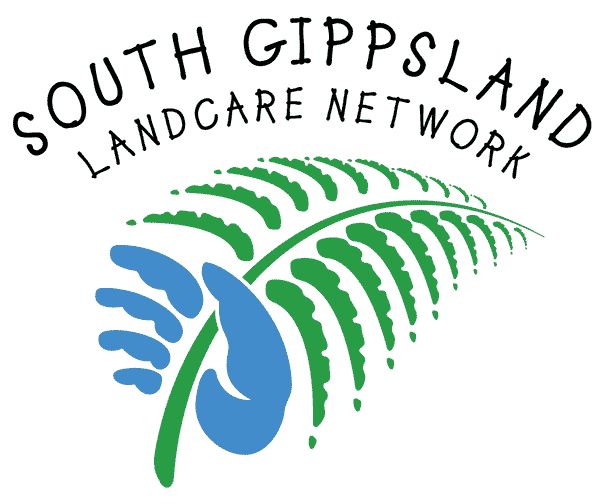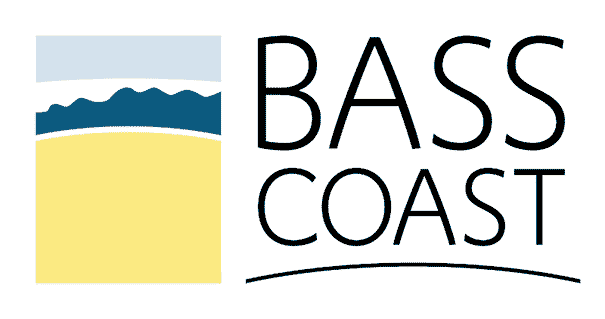Amelia and Dan Bright: Our Story
Amelia and Dan Bright of Amber Creek Farm in Fish Creek have been working on their 165-acre farm since 2006, farming free range pigs, alongside saw-milling and agroforestry. They are committed to sustainable farming and land management.
Our Vision
“Sustainable farming and living underpins everything we do and all decisions we make. We strive to close the loop on our farming practice and provide a sustainable business model for our family and the environment."
"We want our kids and their generation to know and enjoy the land we live on,”
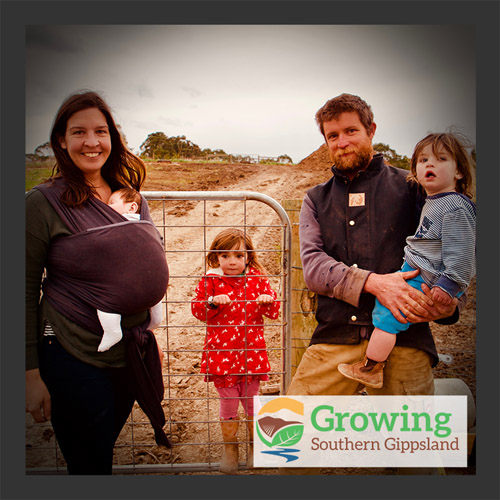
Enterprise: Grazing - Mixed Grazing and Agroforestry
Business Name: Amber Creek Farm
Locality: Fish Creek
Catchment Management Region: West Gippsland
Landcare Network: South Gippsland
LGA: South Gippsland Shire Council
Landform: Gippsland Plains
Soil Type: red-brown clay loam dermosols
Annual Rainfall Average: 848.5 mm or 33.4 inches (Source- Bureau of Meteorology) Farm records: 1000 mm.
Our Enterprise: ‘Hogs and Logs’
Their approach is linked in a close interrelationship between the different aspects of the farm and land use, both for the benefit of the business and the land.
“We generate our income from pig farming, tree farming and saw milling, which we have designed to operate together to recycle waste and improve soil quality and the landscape.
If you do forestry on your farm in the right way, you have an impact on your pasture production, but you can minimise that negative impact. We utilise the waste from the saw mill to decrease the pressure our pigs have on the land.”
Our Challenges
The Bright’s focus on the link between soil and climate.
“We know that the soil in South Gippsland has quite a few natural deficiencies, so addressing those sorts of things is what we should look at doing.
The weather is much drier than it used to be. We try and adjust to this change. But you can’t just worry about climate change. You might forget you've got a market to worry about, and you've got supply inputs to worry about, and you've got people to worry about. You can't just focus on one problem; you've got quite a number.”
Transport of livestock is a problem, with trips across the other side of Melbourne.
“In the last five years in Gippsland getting the pigs processed has become a much harder thing. The abattoir burnt down 18 months ago. That’s made a big impact. “
Our Landscape Activities
The Bright’s have planted thousands of trees, which provides a future income source and enhances the biodiversity of the property, as well as soil and water health.
“Our tree plantings enable us to combine our income source with our commitment to recycling. We use pruned timber grown on site for the mill thus minimising our environmental footprint. Off cuts from the mill are used to construct ‘home pads’ for our pigs which we rotate every three to four days. This level of mobility enables us to constantly regenerate the soil by using naturally produced pig manure supplemented with saw dust from the mill to compost the land.
We've now got this really clean water catchment, because we've fenced off that gully. There's no levels of manure or high nutrient stuff going in and very little silt levels coming into the dam, so it's really clean water. We’ve got all this habitat now with all these different creatures.”
Our Practices and Successes
The approach to wood waste and livestock production is beneficial. The result is a major improvement in soil health
“Dumping the woodchips on the paddock and turning that into compost and stuff, and then that's getting turned into soil. They're capturing carbon out of the atmosphere and storing it in soil, so they've got benefits for climate change, but more immediately they've got benefits for us, because they grow the grass better, and they maintain and capture moisture in the soil quicker, they make for healthier tastier pigs.”
Their focus is on food quality and sustainability
“We are committed to providing good quality food and distributing this food with minimal impact on the environment.
Our commitment to sustainable food production and cooperative practices is evident in our point of sale processes. We are co-founders of the Prom Cost Food Collective. We come together with other local producers on a monthly basis to pack food and produce orders and then share the distribution tasks.”
Sharing
The Bright’s are committed to sustainable food production and cooperative practices is evident in their founding of the Prom Coast Food Collective comprising 24 growers: ‘cheese, dairy, yoghurt, chicken, turkey, pork, beef, lamb, grain, flowers, bread, cleaning products, preserves, honey’.
“A friend and I [Amelia] started Prom Coast Food Collective, and that's become a really substantial, financially substantial part of our monthly turnover.
It's online shopping, for the first two weeks of the month, and then we meet for our local - we call it a convergence, there's no trading, but it runs effectively like a farmers market. People just come and pick up their pre-ordered goods. Then the following weekend all the producers get together, and we pack for each customer's lists.” (Amelia)
Websites
www.ambercreekfarm.com.au
www.ambercreeksawmilling.com.au
www.promcoastfoodcollective.com.au
Images
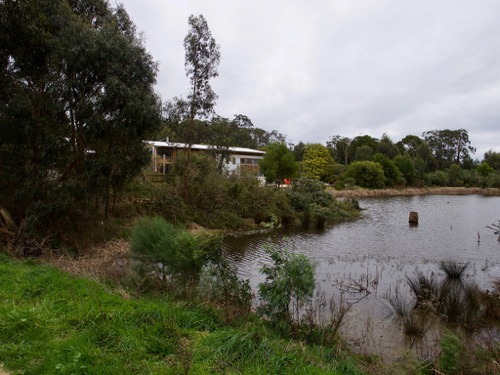
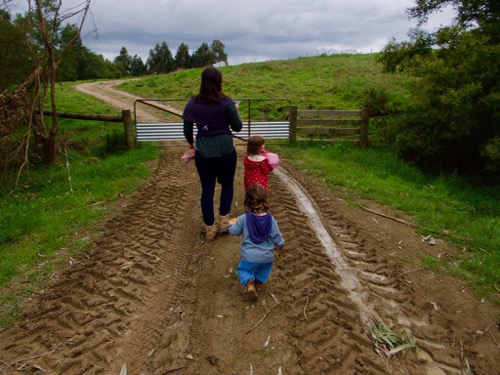
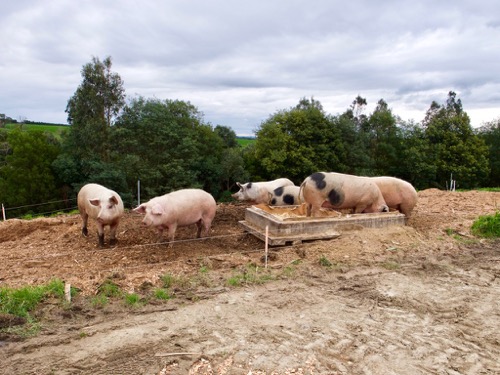
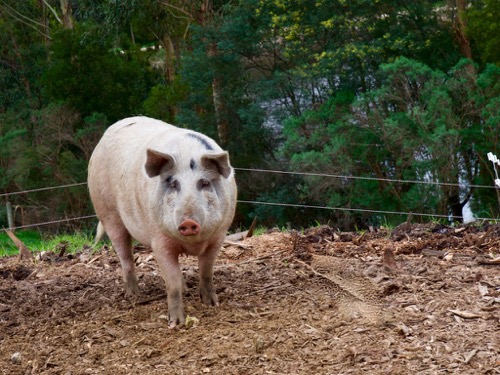
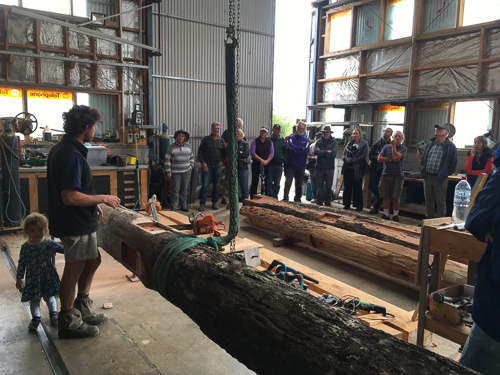
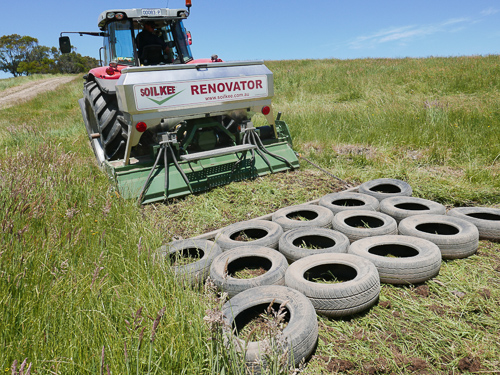
Archive Video (2016)


